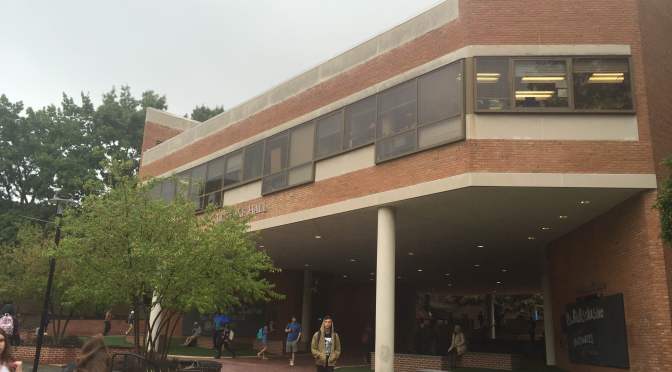
Students create Freedom School
By: Sarah Rowan, News Editor
Towson’s Black Student Union and the Organized Network of Student Resistance plan to launch Towson Freedom School, a workshop for black studies, beginning Sept. 22 in the Lecture Hall at 6:30 p.m.
Student activist and founder John Gillespie sees the organization as a way to “create a black studies space in the absence of a black studies space at Towson.”
Towson offers a 21-credit interdisciplinary African and African American Studies minor that developed out of the Civil Rights Movement during the 1960s and 1970s, according to the University website. It was originally offered as a 42-credit concentration, but was reduced in 2002 by the African American Advisory Committee.
According to data from the Office of Institutional Research, 293 out of 1678 Towson faculty members belonged to minority groups in the 2015-2016 academic year. The data show that in the same academic year, every academic college had fewer than 7 percent tenured or tenure-track African-American faculty members.
“Towson Freedom School is basically to provide a space for black studies because the institution has failed to provide that space,” Gillespie said.
The space will provide another debate space opportunity for students, apart from the Towson Debate Team, which has been “the bedrock of a lot of black activism, but…is a very exclusive space,” according to Gillespie.
The name “Towson Freedom School” comes from historical alternative schools for black people in general, Gillespie said. Freedom schools began as a movement in the 1960s when black students were not allowed to attend white schools.
Student activist Bilphena Yahwon said that other universities have created similar organizations that eventually became the blueprint for the implementation of a black studies program.
“I’m excited for it,” Yahwon said. “I think that it will be nice to see how that works out here at Towson.”
While he doesn’t know how many people are expected to attend the first session, Gillespie said that there has been a lot of interest in the program on the internet, especially on Twitter.
The program will be primarily student-led, though faculty will be involved.
The goal of the program is for all attendees to become students of one another, even faculty, and to break down boundaries between attending faculty and students.
“They are there to be taught in the same way that I’m there to learn and I’m there to be taught,” Gillespie said. “I don’t know everything, the students that will come don’t know everything and the faculty that will come won’t know everything.”
The program has a tentative reading list, but each week’s session will be open to what the attendees would like to discuss.
The eventual goal of the program will be to implement a black studies major on campus. Gillespie also hopes that the program will allow people a space to do black studies in concurrence with their primary major.
“The central factor is just black though and the thoughts that influence black thought as well,” Gillespie said. “It’s not just learning through what happens in black studies, it’s about what enfolds black studies as well.”

